First Defended Health and Safety Prosecution
Topics covered in this article: Farming & Horticulture
Partners
Phone: +64 7 927 0509
Email: ahopkinson@clmlaw.co.nz
Bachelor of Laws, Bachelor of Arts, Victoria University
Consultants
Phone: +64 7 927 0545
Email: mdenyer.consultant@clmlaw.co.nz
Bachelor of Laws, Bachelor of Commerce, University of Auckland
Kiwifruit Orchard Fatality leads to first defended Health and Safety Prosecution
The decision in the first defended hearing under the new Health and Safety at Work Act 2015 (“Act”), Worksafe New Zealand v A & Ors, has recently been released and provides interesting guidance on the Court’s interpretation of the extent of the duty of care owed under the Act. This case is interesting (and potentially relevant to many Cooney Lees Morgan clients) because it deals with a workplace accident in complex but quite typical factual circumstances, where there were numerous parties involved (the landowner, a contractor, and other service providers), all of whom were charged by Worksafe under the new legislation. The case arose from an accident in May 2016 where a kiwifruit sampler employed by AF was killed when her quad bike rolled on a kiwifruit and avocado orchard owned by A after she had finished collecting samples.
The quad bike was supplied by AF for the purpose of carrying out sampling work, and the employee had been trained in the safe use of the bike, identifying and dealing with hazards and only driving on access tracks and mown grass. The accident occurred in an area of hazardous terrain obscured by unmown grass, in an area of the orchard where the sampler had no reason to go. WorkSafe New Zealand (“WorkSafe”) investigated the accident and brought charges against AF, A, Z and H.
The employer AF was charged for failing to ensure, so far as was reasonably practicable, the health and safety of its worker while the worker was at work, with such failure exposing the worker to risk of death or serious injury. AF has pleaded guilty to this charge and is awaiting sentencing.
A, the orchard owner, and H, the packhouse who requested the sampling on their behalf, were both charged for failing to ensure, so far as was reasonably practicable, the health and safety of a worker whose activities in carrying out work were “influenced or directed by” A and H while the worker was carrying out the work, thereby exposing the worker to a risk of death or serious injury. A was also charged under section 37 of the Act for failing to ensure, so far as was reasonably practicable, that the workplace it was in control of was without risks to the health and safety of workers. A and H both defended the charges.
WorkSafe argued that both A and H had a duty to provide the sampler with a map which identified all hazards on the A property. WorkSafe argued that it was reasonably foreseeable that a sampler on a quad bike might stray into an area outside the formed tracks and mown areas of a kiwifruit block and therefore all potential hazards anywhere on the property should have been identified on the map and appropriate controls put in place, including signage around the property and inducting AF samplers when they arrive on site.
The Court disagreed with WorkSafe’s argument. For the kiwifruit industry, there was no evidence to support the proposition that any sampler would expect to have their work in any way “influenced or directed” by an orchardist and the evidence of A’s orchard manager was that he had no expectation to meet, greet, engage with or induct an AF sampler. In relation to the packhouse H, the Court considered that its role as a conduit for information only meant it did not have the knowledge, expertise, contractual obligation or any expectation from any other industry participant that it should somehow take over responsibility for hazard identification and risk assessment for maturity samplers on orchards.
In this case, the Court was satisfied on the balance of probabilities that the evidence established that both A and H had defences to the charges laid. However the Court also concluded that the kiwifruit industry’s operations and practises have been found wanting.
The new legislation requires a “nuanced and flexible approach” to health and safety, particularly for the complex work environments of today. This means that any business engaging with others should consider what influence or control it might have in relation to health and safety, including what “influence or direction” it may have over other business’s employees working at offsite locations.
Ultimately, each case will be decided on its own facts in the context of its particular industry. If you require any advice on your particular health and safety obligations, please get in touch with us.






